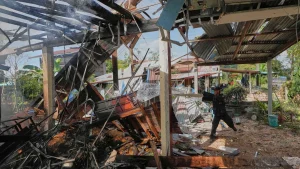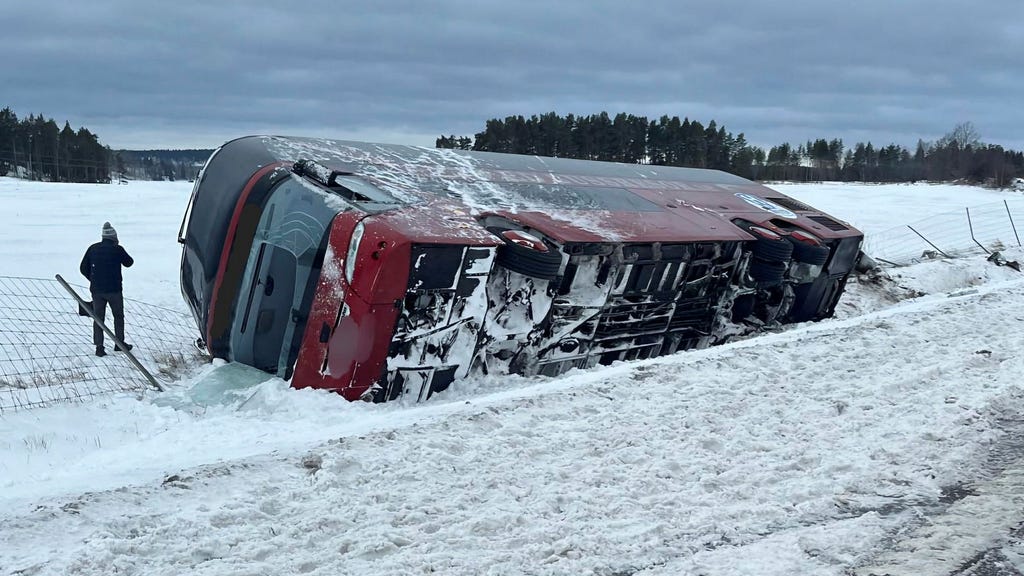A bus carrying approximately 15 individuals overturned on the E4 highway near Jönåker, Sweden, at around 1:30 PM local time. The cause of the accident remains unknown. The incident prompted a swift response from emergency services, including the fire department and medical personnel. The highway was closed in the vicinity of the accident, causing significant traffic disruptions. The overturned bus, which was on a sports trip rather than in regular service, was lying on its side in the northbound lane. A tow truck arrived at the scene around 2:00 PM, and the estimated duration of the rescue operation was initially projected to last until 3:00 PM.
The passengers on board the bus ranged in age from 16 to 30 years old. Initial reports indicated a total of 14 patients requiring medical attention. Of these, four individuals sustained serious injuries, while ten others suffered moderate injuries. The severity of the incident prompted both the regional healthcare authority, Region Sörmland, and Nyköping Hospital to activate their emergency response protocols, entering into ”stabsläge” – a state of heightened preparedness involving the formation of a dedicated team to monitor the situation and implement necessary measures. This preparatory measure allows healthcare facilities to efficiently manage resource allocation and coordination in response to the influx of patients.
One of the critically injured passengers was transported by air ambulance to Region Uppsala for specialized care. Another seriously injured individual was taken to Vrinnevi Hospital in Norrköping, while the remaining two were admitted to Nyköping Hospital. All ten individuals with moderate injuries were also taken to Nyköping Hospital for treatment. The coordinated efforts of emergency services and healthcare providers were essential in ensuring timely medical attention to all those affected by the accident.
The bus accident occurred amidst challenging weather conditions, with widespread reports of slippery roads throughout southeastern Sweden. Several other accidents had already been reported on Saturday due to the treacherous road conditions. Police issued warnings urging drivers to avoid unnecessary travel due to the prevailing icy conditions. This emphasizes the importance of exercising extreme caution when driving under adverse weather conditions, especially when road surfaces are slippery.
The incident underscores the potential dangers of road travel, particularly during periods of inclement weather. The coordinated response of emergency services, including the fire department, ambulance services, and air ambulance, played a crucial role in mitigating the impact of the accident and providing prompt medical care to the injured. The activation of emergency protocols by regional healthcare authorities and hospitals highlights the importance of preparedness and efficient resource management in handling such incidents.
Furthermore, the accident serves as a stark reminder of the need for drivers to adjust their driving behavior to suit prevailing weather conditions. Heeding warnings issued by authorities and exercising heightened caution on slippery roads can significantly reduce the risk of accidents. Staying informed about weather conditions and road closures can help drivers make informed decisions about travel plans and avoid potentially dangerous situations. In challenging weather, prioritizing safety and avoiding unnecessary travel can contribute to preventing accidents and ensuring the well-being of all road users.














